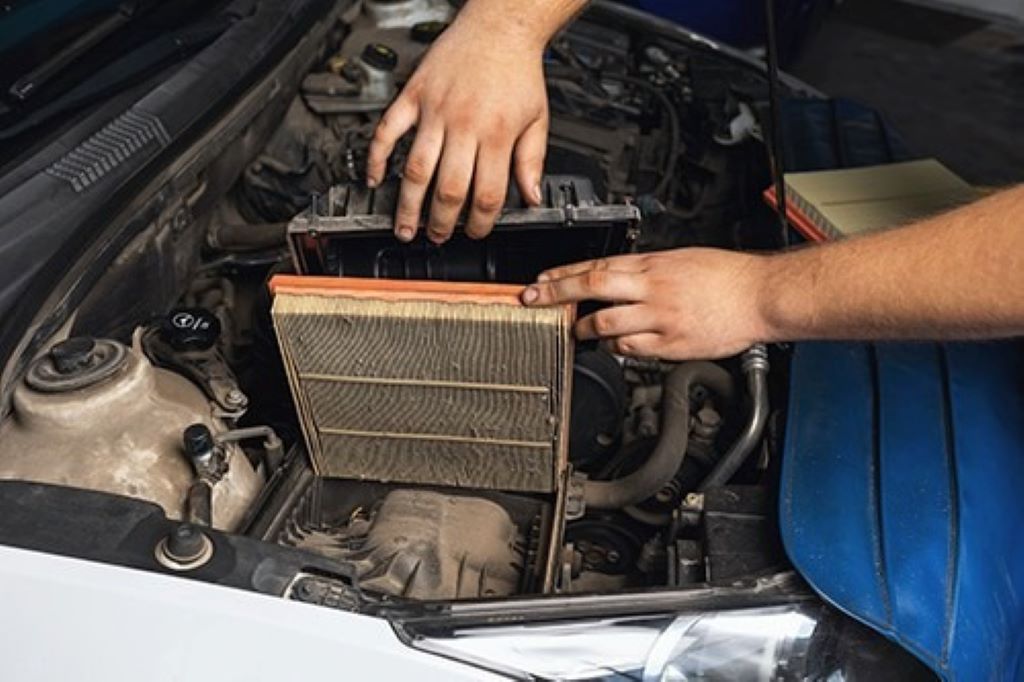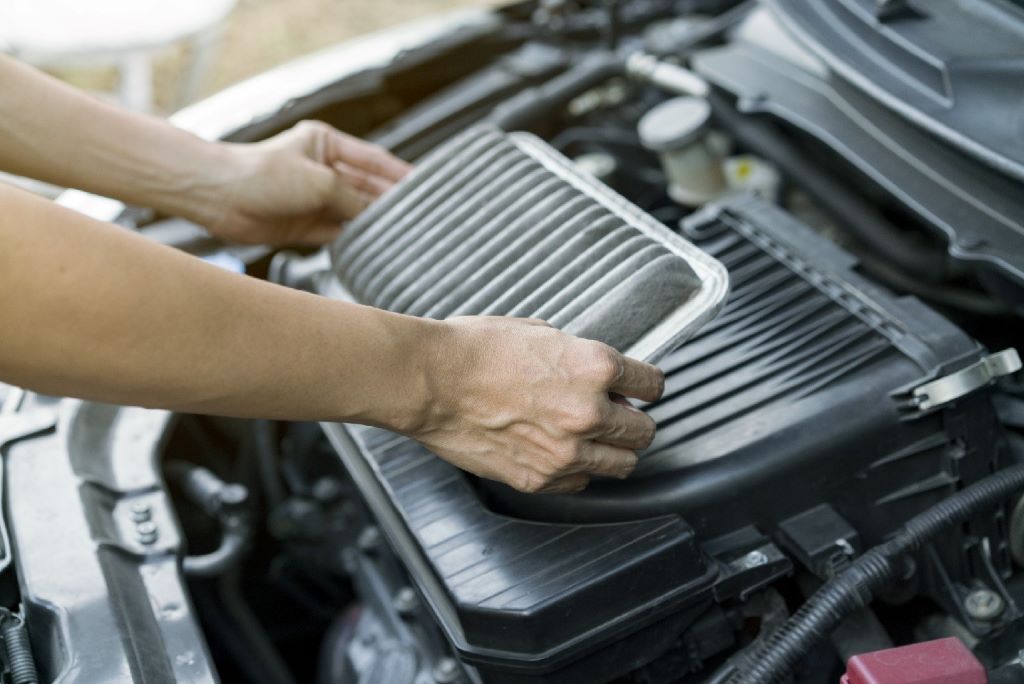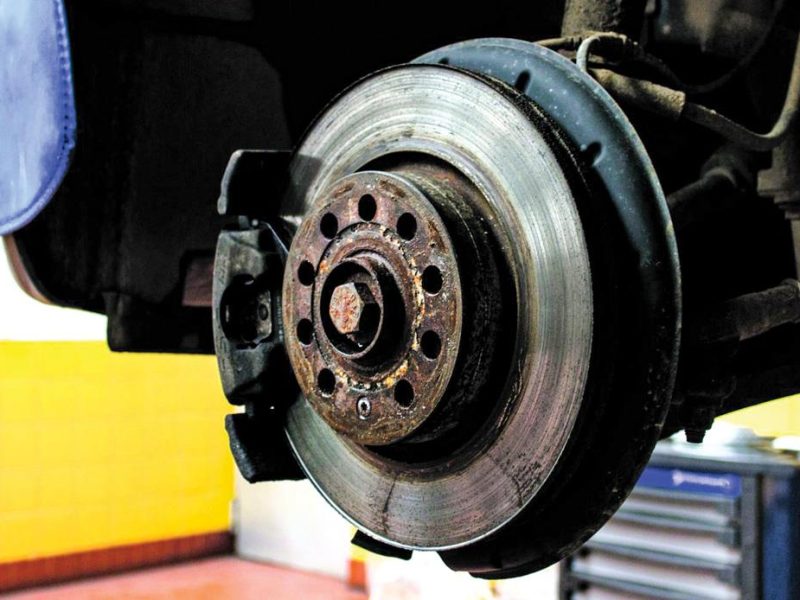Introduction: Why Your Car’s Air Filter Matters More Than You Think
Your car’s air filter might seem like a small, insignificant component tucked away under the hood, but its role is monumental. It acts as the lungs of your vehicle, ensuring that clean air enters the engine while filtering out dirt, debris, and contaminants. Knowing when to change air filter in car is crucial because a clogged or dirty air filter can wreak havoc on your car’s performance, fuel efficiency, and even its lifespan.
In this comprehensive guide, we’ll dive deep into when to change air filter in car —a question many drivers overlook until it’s too late. We’ll explore how often you should replace it, signs that indicate it’s time for a change, and why staying proactive about this maintenance task can save you money and headaches down the road. By the end of this article, you’ll have all the tools you need to make informed decisions about your vehicle’s health.
Understanding the Role of an Air Filter in Your Car
Before diving into when to change air filter in car , let’s first understand what it does and why it’s so critical.
What Does an Air Filter Do?
An air filter ensures that only clean air reaches your engine. Engines require a precise mixture of air and fuel to operate efficiently. If dirt, dust, or debris enters the engine, it can cause excessive wear and tear, leading to costly repairs. According to a study by AAA, poor engine performance due to neglected air filters accounts for nearly 15% of roadside breakdowns annually.
Types of Air Filters
There are two main types of air filters in modern vehicles:
- Cabin Air Filters : These filter the air entering your car’s interior, ensuring you breathe clean air while driving.
- Engine Air Filters : These protect your engine by filtering out particles before they reach the combustion chamber.
Both types play vital roles, but for the purpose of this article, we’ll focus primarily on engine air filters.
How Often Should You Change Your Car’s Air Filter?

The frequency of air filter replacement depends on several factors, including driving conditions, mileage, and manufacturer recommendations.
Manufacturer Guidelines
Most car manufacturers recommend replacing the air filter every 12,000 to 15,000 miles. However, these guidelines assume ideal driving conditions. For instance, if you frequently drive in dusty environments or urban areas with heavy pollution, you may need to replace it more often.
Driving Conditions Matter
- City Driving : Stop-and-go traffic exposes your car to higher levels of exhaust fumes and pollutants.
- Off-Roading : Dusty trails and unpaved roads accelerate filter clogging.
- Extreme Weather : Snow, rain, and high humidity can also affect filter performance.
A report from Edmunds suggests that drivers in harsh environments should consider changing their air filters every 6,000 to 8,000 miles.
Signs That It’s Time to Change Your Air Filter
Knowing when to change air filter in car isn’t always straightforward. Here are some telltale signs that your filter needs attention:
1. Reduced Fuel Efficiency
If you notice your car guzzling more gas than usual, a dirty air filter could be the culprit. A clogged filter restricts airflow, forcing the engine to work harder and consume more fuel. According to the U.S. Department of Energy, a clean air filter can improve fuel economy by up to 10%.
2. Decreased Engine Performance
Does your car feel sluggish during acceleration? This could indicate insufficient airflow caused by a dirty filter. Over time, this strain can lead to engine misfires and reduced power output.
3. Strange Engine Noises
If your engine sounds louder than normal or emits unusual noises (like coughing or popping), it might be struggling to breathe due to a blocked filter.
4. Check Engine Light
While not always directly related to the air filter, a lit check engine light can sometimes signal issues stemming from restricted airflow. Don’t ignore this warning!
5. Visible Dirt and Debris
Pop open your hood and inspect the air filter. If it looks dark, dirty, or covered in debris, it’s definitely time for a replacement.
DIY vs. Professional Replacement: Which Is Right for You?
Changing an air filter is one of the simplest car maintenance tasks, but deciding whether to do it yourself or hire a professional depends on your comfort level and budget.
Pros of DIY Replacement
- Cost Savings : Air filters typically cost between $15 and $50, depending on your vehicle model.
- Quick Process : Most replacements take less than 15 minutes.
- Empowerment : Learning basic car maintenance skills boosts confidence.
Pros of Professional Replacement
- Expertise : Mechanics ensure proper installation and may spot other potential issues.
- Convenience : Ideal for those who lack tools or technical know-how.
For step-by-step instructions, check out this detailed guide from Popular Mechanics.
The Impact of Neglecting Your Air Filter
Ignoring when to change air filter in car can have serious consequences beyond just reduced performance. Let’s break it down:
Increased Repair Costs
A clogged air filter forces your engine to overcompensate, which can lead to premature wear on components like spark plugs and oxygen sensors. Replacing these parts can cost hundreds—or even thousands—of dollars.
Environmental Concerns
A poorly functioning air filter increases fuel consumption, contributing to higher carbon emissions. In fact, the Environmental Protection Agency (EPA) estimates that maintaining optimal vehicle performance can reduce greenhouse gas emissions by up to 12%.
Safety Risks
Poor engine performance can compromise your ability to accelerate quickly or respond effectively in emergencies. This poses a risk not only to you but also to other drivers on the road.
How To Change Semi Truck Wheel Seals: A Step-by-Step DIY Guide
Top Tips for Extending Your Air Filter’s Lifespan
While regular replacements are essential, there are ways to maximize your filter’s longevity:
- Park Strategically : Avoid parking near construction sites or dusty areas.
- Use High-Quality Filters : Premium filters offer better filtration and durability.
- Regular Inspections : Make checking your air filter part of routine maintenance.
- Avoid Over-Oiling Performance Filters : If using reusable filters, apply oil sparingly to prevent damage.
Frequently Asked Questions About Air Filters
Here are answers to common questions about when to change air filter in car :
1. Can I clean my air filter instead of replacing it?
Yes, if you have a reusable performance filter. Otherwise, disposable filters must be replaced.
2. Will a dirty air filter cause my car to stall?
It’s unlikely, but severe blockages can lead to rough idling or stalling.
3. Does weather affect how often I need to change my air filter?
Absolutely! Extreme heat, cold, or humidity can degrade filter materials faster.
4. Are aftermarket air filters worth it?
High-quality aftermarket filters can enhance performance, but stick to reputable brands.
5. Can a bad air filter damage my turbocharger?
Yes, restricted airflow can place undue stress on turbocharged engines.
6. How much does it cost to replace an air filter?
Expect to pay $20-$70 for parts and labor at a mechanic.
7. Is it safe to drive with a dirty air filter?
Short-term, yes—but prolonged use can harm your engine.
8. What happens if I forget to change my air filter?
You’ll likely experience reduced performance, increased fuel consumption, and potential long-term damage.
9. Can I replace my cabin air filter myself?
Yes, though accessibility varies by vehicle model.
10. Does my car’s age impact air filter replacement frequency?
Older cars may require more frequent changes due to worn seals allowing extra debris entry.
Conclusion: Stay Ahead of the Game
Knowing when to change air filter in car is crucial for maintaining peak performance, maximizing fuel efficiency, and avoiding unnecessary expenses. Whether you choose to tackle the job yourself or enlist professional help, staying proactive will pay dividends in the long run.
Remember, your car deserves the best care possible—and a clean air filter is one of the easiest yet most impactful ways to show it. So, pop open that hood, inspect your filter, and give your vehicle the fresh start it deserves.
Got questions or tips of your own? Share them in the comments below—we’d love to hear from you!
By following this guide, you’re now equipped with everything you need to keep your car running smoothly and efficiently. Happy driving!
Read More:
How to Clean a Semi-Truck: A Comprehensive Guide for Drivers and Owners
What Are the Common Services of Trucking Companies?






